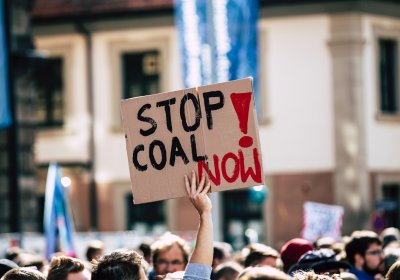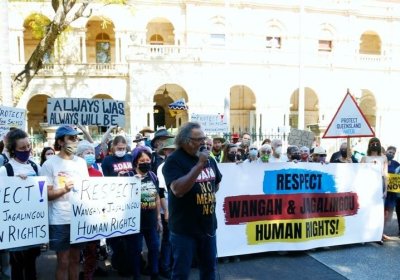The Morrison government’s focus on ramping up military spending is being challenged by security experts, who say the biggest threat to Australia is extreme weather events. Jacob Andrewartha reports.
Intergovernmental Panel on Climate Change (IPCC)
Climate change has the potential to bring about an overall break-down in important ecological and social systems, including agriculture and food production. Alex Bainbridge reports.
The catastrophic floods in northern NSW and southern Queensland seems to have taken some MPs by surprise. But, as Alex Bainbridge reports, the IPCC has warned that climate change will increase the likelihood of such catastrophic events.
There was a dangerous underestimation of the scale of the climate crisis we face at COP26, argues David Spratt. Targets for 2025 and 2030 need to be the focus.
Climate expert, Australian National University emeritus professor and Climate Council member Will Steffen speaks to Green Left about climate science and politics in the lead up to the COP26 United Nations climate summit in Glasgow.
Scott Morrison is still clinging to a weak emission reduction target of 26–28%, set six years ago. At the current rate, we won't reach net zero climate pollution until 2170, argues Jessie de Waal.
Activists were treated to an early-morning raid by an anti-terrorist outift for chalking a protest sign against oil and gas giant Woodside Energy, reports Chris Jenkins.
The IPCC's latest report should be a wake-up call to governments everywhere, but it's going to take more than science to force action by the biggest global emitters, writes Barry Sheppard.
Warming is already set on course to reach dangerous levels. But, if we do next to nothing — the course we are on — it could get a lot worse, writes Peter Boyle.
Climate scientists say their predictions about global temperature rises have been too conservative. That's why stronger and more decisive action is needed, argues Pip Hinman.
UN Secretary General António Guterres wants only those countries that can show “concrete, realistic plans” for reducing their carbon emissions to come the the UN climate summit in September. But you can be sure the recalcitrants, such as Australia, will be there.
Despite overwhelming evidence that the world has already passed certain tipping points, setting off large and unpredictable changes in the climate, why are governments still refusing to act on the scale and pace required, asks Pip Hinman?
- Previous page
- Page 2
- Next page











